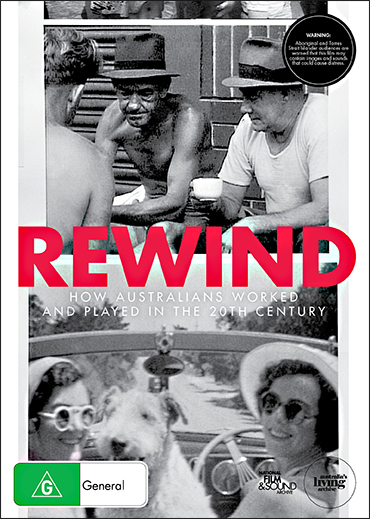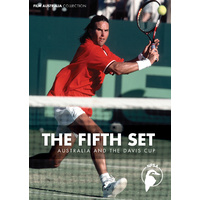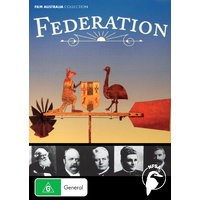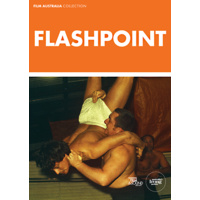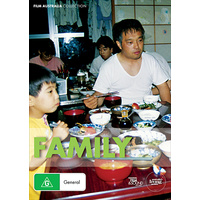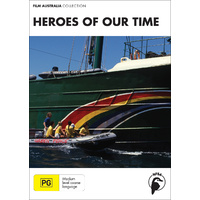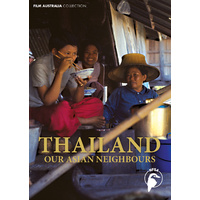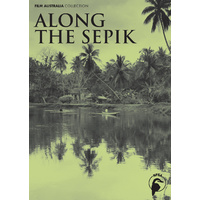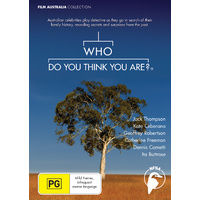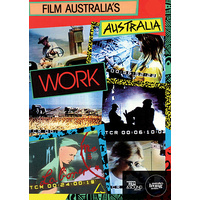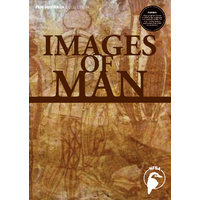1997, Total Running Time 130 Minutes (26 x 5 Minutes)
These entertaining single-subject history 'bytes' have been developed for television and educational use. Each of the 26 single-subject programs presents a snapshot of everyday Australian life. Drawing on newsreels, documentaries, home movies, television and cinema advertisements from the greatest archival libraries in the country, Rewind shows Australian habits and attitudes as they were made and as they changed.
School Days A century of school life, from the days when the system was primarily designed to instil discipline and obedience, to the social revolution of the 1960s and 70s, when schools were required to serve the needs of a constantly changing society and its future citizens.
Made in Australia From talkie films and teapots to chocolates, cigarettes and motor cars, Made In Australia campaigns have been urging us to buy local products for many decades. This episode looks at how the various campaigns appealed to differing public moods and aimed to build economic loyalties.
Getting Around Distance was a major obstacle to progress in this country, where international trade and land-based journeys took months. The development of railways and the rise of private and commercial vehicles and modern roads revolutionised trade and domestic travel. Meanwhile, safe air travel delivered the world to Australia.
Reel Appeal Cinema campaigns helped rouse our sense of charity and social duty during hard times. After the war, celebrity-based community appeals turned to the world food shortage and Australia's prime role in international relief, before television raised our consciousness to global problems on a nightly basis.
Country Life Annual agricultural shows developed as popular celebrations of our nation-building prosperity, as well as vital contact points and social highlights in a rural family's hard working year. Australia rides the sheep's back no more, but country life goes on.
Breaking Away In the first half of the 20th century, women were expected to work only until marriage, and only in a narrow range of jobs. During wartime many took men's places in the workforce, but women had to struggle to break away from tradition and demand equal pay and unlimited opportunity.
Christmas The reversal of seasons for Christmas was always a source of wonder in Australia, where the summer heat turned European family and feasting traditions upside down. Many traditions survived here, with adaptations for the Australian climate, character and changing culture.
Skiing The story of Australian snow sports, from the snowfield settlements of the gold rush era and one of the world's first ski clubs, to the resorts of the 1920s and the alpine communities set up during construction of the Snowy River Scheme. Ease of access and growing popularity smoothed the way to successful international competition.
Dealing with Disaster This country has had to come to terms with shocking destruction wreaked by bushfires, droughts, floods and cyclones. We look at the human responses among victims, the courage displayed on family and community levels and the strength and authority required to clean up and rebuild.
Money Business From pounds, shillings and pence to plastic dollars and cents, the money system we use on a day-to-day basis has become easier, cleaner and harder to counterfeit. The changeover to decimal currency and the phasing out of paper notes demanded public education campaigns.
Nice Day for a Wedding A light-hearted and revealing look at how wedding preparations and marriage expectations have changed in modern Australian society - while the romance, the expense and the sense of commitment on "that special day" have essentially remained the same.
Holidays The advent of paid leave and annual family holidays led to a leisure-conscious society in Australia. Virtually everyone could access beaches, mountains and bush and modern transport opened an empty continent to foster today's billion dollar tourist industry.
Eating Habits Australia was always a country rich in fresh produce, much of it tinned or boxed and sent by ship to feed the Empire. Our diets were stodgy and Anglocentric prior to postwar immigration, and food played a quite unimaginative role in most peoples' lives. The last frontier for food now enjoys one of the most culturally diverse national cuisines in the world.
Fighting Nature In this uniquely ancient land, different types of farming and methods of land management introduced by Europeans made for short-term wealth but long-term problems. Now environmental concerns and disastrous conditions have necessitated changes to the ways we interact with and exploit our environment.
Law of this Land Aboriginal Australians describe the land and its importance to their culture. This knowledge is handed down by elders to those younger generations willing to learn, despite being nearly extinguished by a century of oppression. We observe significant milestones in the Aboriginal and Islander fight for recognition as living cultures, with laws that apply to lands they have occupied for tens of thousands of years.
Horse Power The horse was the engine of exploration, agriculture and transport well into the 20th century. From the brumbies and rodeos of the outback to working horses and Olympic jumpers; from the Light Horse and horse-drawn trams to the public idolisation of Phar Lap, Australians built a national spirit with horses.
Your Attention is Requested Looks at how we sold political messages in the changing mass media. From the silent era politicians and public figures struggled to come to terms with the camera, graduating from nervous pontification, through stiff propaganda and eventually to slick public relations. Television ensured the democratic triumph of media-created and media-wise politicians.
Sea Around Us Australians live, work and play along the coast. The sea has long been central to our lifestyle and leisure pursuits, a major source of industry and food. Our attitudes to the environment extend now to the sea, and we contrast intrusive fishing methods, science and tourism of bygone eras with modern marine policies and fishing practices.
Dress Sense The Australian climate and lifestyle led to drastic changes in our dress sense over the 20th century. We eventually adapted European clothes for a warmer climate and defied convention for comfort. We take a peek at the evolution of underwear, changing ideas of beauty and style, and the late 1940s push for popular international designer fashion.
Great Prospects Much of Australia's wealth derives from minerals and the important townships that sprang up round mines. From the golden grandeur of Ballarat and Kalgoorlie to the corporate towns and new minerals found in abject isolation, the fortunes of these communities reflect a modern pioneering spirit.
Making Australia Home The massive post-war immigration policies for a booming Australia targeted non-English speaking peoples for the first time and resulted in the uneasy beginnings of the world's first truly multicultural society. The development of community level services and the sustained promotion of public tolerance for difference would prove vital to success.
Frozen Images Features the great Australian documentary maker Frank Hurley and his personal stories and films from expeditions to Antarctica since early in the 20th century. Hurley's intrepid camerawork illuminates the natural beauty, scientific wealth and environmental fragility and provides a dramatic background to Australia's continuing national interests in the region.
A Fair Go Australian unions made themselves intrinsic to the lives and livelihoods of workers throughout difficult times in the first half of the 20th century. Eventually they galvanised their economic bargaining power to fight for basic rights from employers and the government. These unions spearheaded one of the most successful workers' movements in history.
To Be or Not to Be Traces the development of popular theatre which reflected Australian characters and lifestyles. The emergence of a distinctly Australian voice on stage required government funding and the growth of an independent theatre scene. It demanded brave writers, new acting skills and cultural self-confidence.
Suburban Dreams Australian cities have had to sprawl wider each year in order to accommodate average Australians and their dreams of home ownership. The race for outer suburbs continued unabated for nearly 70 years, when trends returned to inner cities and older homes.
Call to Arms Australia had the highest level of volunteers and the greatest distrust of conscription throughout the First World War. During the Second World War, young men enlisted for generous pensions and housing schemes, as well as the genuine threat posed to the nation's security. After Vietnam, when public opinion on the war was violently divided and youth conscription was an issue again, there would be different wounds to heal.
A Film Australia National Interest Program produced in association with the National Film and Sound Archive and with the assistance of SBS Independent. © 2011 National Film and Sound Archive of Australia.
(199300900)
Director: Margaret Murphy
Year: 1997
Running Time: 130 Minutes (26 x 5 Minutes)
Classification: G
| SKU | 199300900 |
| Brand | Film Australia |

